| hey all! my name is emily (or em, or sunshine, if you're erin). | gay classical music blog | she/her |
Don't wanna be here? Send us removal request.
Note
Hey, I'm just going back through my likes and found the post of your SATB musescore version of In Flanders Fields. I was just wondering if you ever got a full recording of it being performed because I would really love to hear it!
Hey! Glad you asked because I just recently finished self-publishing and putting up a website! You can find my music and its recordings here: https://emily-green-choral-music.webnode.com/You can also find it on sheet music plus if you look up Emily Green :)
16 notes
·
View notes
Text
“Outside of music everything I do is badly done and stupid”
-Ludwig Van Beethoven and also me
690 notes
·
View notes
Text
I had a class last semester that I had to leave a few mins early to catch a bus and so many other students who wanted to ditch class would like try to sneak out while the teacher wasn’t looking and they’d always get caught but when I needed to catch my bus I’d just gather my stuff, make eye contact with the teacher and wave goodbye and walk right out the door and she never said anything. Probably also helps that I was a really good student in that class but that probably goes along with her mindset of “she obviously isn’t doing anything wrong because...... why would she be?”
One thing I’ve learned in life, if you act really self-assured and confident you can pretty much get away with anything.
434K notes
·
View notes
Text
REBLOG if you have amazing, talented WRITER friends.
Because I certainly do, and I love every single one of them and their work.
206K notes
·
View notes
Text
This is so sad Alexa play variation #25 of the Goldberg Variations
104 notes
·
View notes
Photo
I remember one time when I was really little (maybe 5 or 6) I had this string and I was learning to tie knots and I thought of, what, to tiny me, was the most clever joke on earth. So, of course, I had to tell my mom:
“What do you call a knot that’s blind?”
“A knot see!!” (Haha get it, because it can Not See???”
Needless to say, my mother was not amused. I couldn’t figure out why at the time.

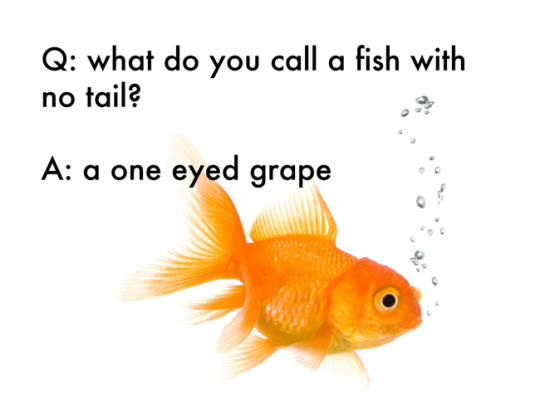


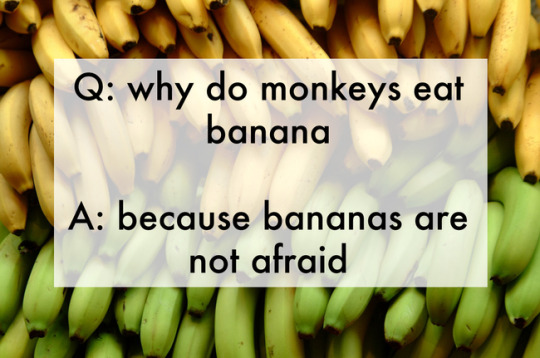

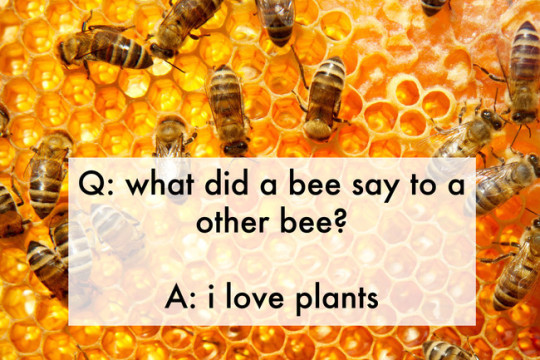
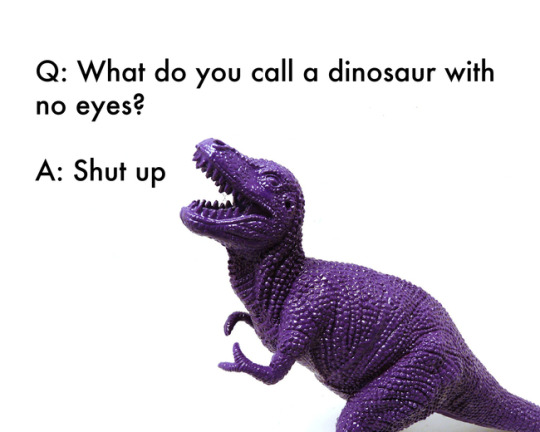
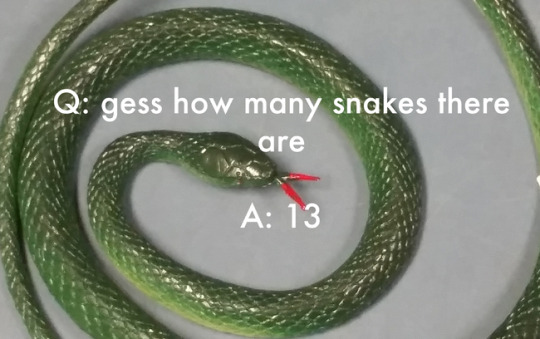

Kids Write Jokes
115K notes
·
View notes
Text
Queer is not a slur.
Not when used as a self-identification, and not when used as an umbrella term within the community, at least.
See, here’s the thing: The most common identifier used by bi, pan, and trans people to describe their sexuality? Queer.
Given that multiple studies have shown that bi people alone comprise about half the community, that makes it by far the most common term we use to describe ourselves.
What’s more, it’s not just an identifier: it’s a rallying cry. It’s a banner the whole community has assembled under forever. “We’re here, we’re queer” is a cliché for a reason. It’s a statement of power, and of pride - yes, we’re weird. We don’t fit into the “acceptable” categories cisheteronormative society gives us. And that’s a good thing. It’s a call to demolish those “acceptable” boxes, to build a world we’re all part of.
Its rejection is a relatively recent move by the same homonationalism that brought us “Bi people don’t belong,” the thrilling sequel “Trans people don’t belong,” and the stunning conclusion “Ace people don’t belong.” It’s a deliberate strategy employed by respectability politicians seeking a seat at the table - taking the work we’ve put in and distancing themselves from us so they can tell the straights “We deserve your respect because we’re just like you! We even hate queers!”
(And don’t think it’s a coincidence that the community suddenly forgot the massive, massive overlap between “queer” and “poly” when building the very self-conscious image of two clean-cut upper-middle-class smiling young professional men or women either. Anything that wasn’t “respectable” enough had to go. My deepest thanks to the person who pointed this out.)
In the rush for our place in an oppressive hell, we’ve lost our revolutionary edge, lost our fire, and lost a lot of what drove us in the first place. Fuck. That.
I’m queer, and you will never take that away from me.
52K notes
·
View notes
Text
Dude yes that’s exactly it and also that feeling of “wait did I really come up with this or did I just accidentally sort of copy some other piece that was lingering in my subconscious?” becomes 100000 times more confusing because you aren’t sure whether the familiarity comes from you copying something by accident or whether you’ve just heard it so many times from working on it that it’s drilled into your brain.
Pro tip! Sometimes I have some part of my composition that I don’t quite like yet/still need to figure out but I know if I don’t address it or mark it somehow I’ll just get used to it from hearing it over and over again and forget about it. Notation softwares let you highlight notes a certain colour for a reason ;) That way I can remember that I wanted to fix something and still be able to continue my creative flow uninterrupted.
Also I promise you don’t suck
The thing I do to bypass that feeling is to just go “hey even if this (hypothetically) did suck, I’ll still learn something from finishing it so I might as well keep going” and if you keep going you might (see: almost definitely will) realize it’s actually pretty good and be glad you didn’t give up
If you ever hate a piece just remember that the person who composed it probably hates it more
257 notes
·
View notes
Text
I just had an epiphany and the thought that I was trying to express here that I couldn’t quite put into words is this:
You know the weird sense of detachment you get when you repeat a word enough times and it starts to sound like a fake word? That, except when you’re working on a piece and you’ve heard it a billion times.
If you ever hate a piece just remember that the person who composed it probably hates it more
257 notes
·
View notes
Text
If you ever hate a piece just remember that the person who composed it probably hates it more
257 notes
·
View notes
Text
Overcoming Composer’s Block for Young Composers
Alright this is probably gonna be a long one but I figured if I post some advice to other young composers, (and honestly, a lot of this applies to artists in general to some capacity) I’ll be more compelled to follow it myself.
Composer’s block is a bitch. It can make you feel completely inadequate, no matter how much successful music you’ve composed in the past, and it can throw you into a cycle of being overly critical of the things you do write. This usually just makes it worse.
In this post I’m going to address the root causes of different kinds of composer’s block and how to get to the bottom of it, as well as some tips and tricks for how to get your creativity flowing again.
Usually, composer’s block is really just you making excuses about why the things you’re writing won’t work, or why you can’t use them. Unnecessary filters, if you will. I’m literally still in high school, so the most common source for me is varying kinds of imposter syndrome. First let’s break down what imposter syndrome can look like:
It almost always comes down to the phrase: “I’m not a real composer, because....”
1) “Because I don’t even [insert some qualification you think you should have to be a real composer]”
Maybe it’s that you can’t actually play the instrument you’re writing for as well as you feel you should, or that you don’t play it at all. Maybe it’s because you feel like all your music sounds the same. Maybe it’s because you don’t compose using the method that you think “real composers” use. (Ex: you think “real composers” should just compose using a pencil and paper or by sitting with their instrument, whereas you have trouble getting anything that sounds good when you’re not using a notation software to create your music.)
I can guarantee that there’s a very accomplished composer somewhere out there that breaks whatever imaginary “rule” you’ve set for yourself. Even if you don’t know it. Even the most successful composers likely don’t always feel like “real” composers either, and everyone has a different process and style. That’s the thing. No one is a “real” composer because there’s no such thing as “real” and “fake” composers. There’s no magical secret or enlightenment that suddenly makes you successful and worthy of being taken seriously. This applies to every artist. You just kinda have to make your way up the food chain by just... creating as much stuff as possible, seeking out opportunities even when you don’t think you’re worthy or “good enough” for them (we’ll get to that in a minute) and persevering. People may have more experience and musical knowledge than you, sure, but there’s always someone out there that has more experience than them, too. And as far as the actual process of creating music, no one, not even the best composer, always feels like they know what they’re doing any more than you do. Everyone is an “imposter” because if everyone knew some universal secret to becoming a “real” composer, everyone’s music would sound the same. Remembering this usually helps me to realize that these “filters” I put my creative process through aren’t helpful and that I’m holding myself back.
2) “Because people are overestimating my abilities as a composer. I don’t deserve this [insert position/task you’ve been given] and I’m going to let people down and they’ll see that I was fake all along”
There’s a reason you’ve been given this position. Think of what that reason is. Chances are you’ll immediately want to find an excuse to discredit it: “Well they heard my best piece but I could never write anything that good again,” or “they know I compose but they’ve never actually heard my work. They just assumed I was good and I accidentally oversold myself.” There’s still value in both those reasons, even if some parts of those negative thoughts might be true. If they heard your best piece and thought it was worthy, obviously you’ve proven that you’re capable of writing good music, which means you can do it again. Plus, no successful composer performs the crappy music they threw out. Remember that every composer writes bad music sometimes, you just don’t get to hear it. .
If they’ve never heard your work before but they know you compose music, they are interested in seeing what you will create and likely aren’t expecting you to be perfect anyhow. Someone had enough faith in you to give you this task, and you don’t know whether you’re able to do it unless you try. Let your music speak for itself and you’ll likely be surprised at how it’s received by others. If nothing else, by continuing to create music and step out of your comfort zone, you’re learning. There is a lot of value in that alone. An opportunity where you didn’t quite meet your expectations or those of others, but still learned something, is never a wasted opportunity.
3) “Because I like this music but it’s too simple/cliché/[insert other elitist concept] for real musicians/critics to take seriously”
In this era of modern music, of dissonance, and of new, avant-garde, and frankly, sometimes pretentious music, it’s easy to feel like your style has gone out of fashion already or that you simply can’t compete with the complexity of today’s work. To this, I say screw it. Take it from someone who actually had a critic condescendingly tear apart my first piece to ever be properly performed for being too “traditional”. Throw that rhetoric right in the trash where it belongs. Musical styles and concepts go in and out of fashion the same way clothes do. Remember that the style of an era is defined by the music written in that era, and NOT the other way around. Are you writing music? Do you exist currently in what we consider to be the modern era? Congratulations, you’re writing modern music. I know, I know, you’re all saying: “Okay sure, Emily, but the industry doesn’t think that way, and my having that mindset won’t make people take my music any more seriously.” Here’s a little known fact: the Baroque era’s music usually had a “mood” intended by the composer, contrary to the popular belief that it was purely mathematical. Vivaldi’s Four Seasons were inspired by sonnets and the works are also known as “The Contest Between Harmony and Invention.” It was actually the Classical era that saw this concept go out of fashion, when music was not supposed to mean anything, portray emotion of any sort, or be linked to any form of expression. The idea that music conveyed meaning was scrapped in the classical era, only to be brought back again twofold in the romantic era. All this to say, styles come and go, and YOU are part of the force that dictates those styles.
There was once a brilliant composer whose music was said by critics to be too “old fashioned,” simply a fad that would eventually be forgotten. This composer was Sergei Rachmaninoff, who lived from 1873-1943, around the same time as Scriabin (1871-1915) and Shönberg (1874-1951.) Many people are a little shocked by this juxtaposition, and by the stark difference between the music of the latter two composers and that of Rachmaninoff. People didn’t take him seriously during his career, but now he is hailed as one of the greats. This proves that a composer’s passion shows through their music, no matter whether or not it conforms to the stylistic norms of the era, and that complexity and novelty for their own sake don’t mean anything if the integrity of the composer/music are sacrificed to achieve those things.
Now that we’ve discussed some of the ways that young composers often sabotage their own work with pre-conceived ideas of how their music should be created, let’s talk about some strategies to get back into the “flow” after having addressed the root of the block. This can be especially stressful if you’re on a time crunch and you’re worried about meeting your deadline.
Get the cake out of the oven before you start decorating it.
That’s to say, don’t sweat the small things like entering lyrics, dynamics and slurs until you’ve at least hashed out an idea for your work. This can even just be a melody line or a chord progression, but it’s always better to work in layers than to just work “horizontally” (”horizontally” meaning making sure each measure is perfect and polished before moving onto the next.) Working horizontally almost ALWAYS disrupts the creative flow, especially if you get yourself on a roll. You can even get away with leaving a couple blank measures here and there if you have point A and you know what you want point C to sound like, but aren’t sure how to get there yet. If you worry too much about point B right away, you might end up sacrificing a really good idea you had for later on in your piece just for the sake of one or two measures. An added benefit to this strategy is that maybe, once you come back to it, your point B (as we’re calling it for the sake of this explanation) will end up morphing into a whole new section of your piece. If you feel like that’s even better and it should replace the idea you were originally making your way to, then at least you know you tried both and liked this idea better.
2. Take what you have apart and put it back together again.
Focus on one aspect and see where you can take that aspect alone. Maybe it’s tapping out your rhythm over and over again, or isolating a single instrument or motif. Maybe it’s reading through your lyrics with different intonation. With lyrics, I find it helps to copy-paste them into a document and take out the “lines” to make it one big paragraph. (Leave any punctuation that would naturally be there anyways, of course.) This can help you bypass the boring and often repetitive rhythm that usually comes with poems in order to discover new and more interesting ways of phrasing things. Often, this approach even makes more sense because you can let the natural rhythm of the words shine through instead of forcing yourself into a rigid pattern.
3. Don’t get “stuck” on one idea.
Sometimes you have a really cool idea in theory but it just doesn’t work out on paper. I’ve been guilty of shoving my cool ideas into my music by whatever means necessary, often sacrificing literally everything else. It never works, trust me. Just because Bach can have a four part stretto and somehow make it perfectly seamless, it doesn’t mean you have to. In fact, as a matter of personal opinion, I think that music should be appreciated for how it sounds first and foremost, and then it should be appreciated for its technical value and craftsmanship. That’s just me, but regardless, being able to let go of ideas that just don’t work is a great skill to have. (It’s harder than it seems, too, especially if you’re an idea/concept-oriented person like me.) Plus, who knows? Maybe this particular piece just isn’t the right place for that awesome idea and you’ll be able to recycle it later.
Finally, stay true to your vision, no matter what. In an industry like this, where even the most well known modern composers are sometimes struggling financially, it’s easy to sell out. However, it’s important to remember that each composer’s unique vision is what makes the musical world so diverse and interesting. If your vision doesn’t fit into today’s mould, be a trailblazer, and never shy away from something you’re excited about because you think people won’t be ready for it. The music people aren’t ready for can often be the most ground-breaking
14 notes
·
View notes
Text
reblog if your name isn't Amanda.
2,121,566 people are not Amanda and counting!
We’ll find you Amanda.
11M notes
·
View notes
Text
Hey guys!! Update:
Thank you to everyone who reblogged this post and messaged me with your input. I am pleased to say that with your help and guidance, I’ve chosen Christina Rossetti as the poet I am going to feature.
The poems I’ve chosen are:
Mov. I: Let Me Go/When I Am Dead, My Dearest
Mov. II: Echo
Mov. III: Life And Death/Fluttered Wings
Mov. IV: Paradise: In A Dream
Mov. V: Remember
I’m done movement I and II and I have a good portion of the three others. Thanks again so much for your help!
Call to anyone majoring in english literature
Ya girl has just been asked to be the composer in residence for the Ottawa Regional Youth Choir, which is REALLY FREAKING COOL but sooooo much pressure. (I’m not a real composer! I’m a 17-year-old girl who composed one piece that got a lot of attention and is now expected to compose more!)
Thing is… while I’m very well-versed (pun intended) in music, I know absolutely jack squat about poetry and literature. This has proven to be a problem… I don’t even know where to start.
I want to compose a larger work with several movements. I’m thinking of doing a kind of pot-pourri type thing of pieces set to texts by female poets, or something along those lines. I think I want the poems to represent someone’s journey learning about life, its meaning, and who they are/their purpose. Honestly though, anything by anyone that would be good set to contemporary choral music would be good.
Please help out your small friend who’s just trying to do create something meaningful and prove I’m worthy of the task that’s been assigned to me. Or at least share this so someone else can see it and maybe help. This is a really big deal to me (and in general, as ORYC is the premiere youth choir of my city) and I’m really stressed about this and want to do well.
114 notes
·
View notes
Audio
Thanks Kevin! :)
Day 25
5 more days! It’s hard to believe Pride Month is almost over. Another fantastic composer is lined up for today, Emily, @em-ajor!
Already having pieces premiered by professional choirs, Emily is 17 years of age and hopes to be studying at the University of Toronto in the direction of becoming a music professor. The text for this choral work is taken from a very popular remembrance day poem in Canada; the composer wished to give it more significance so it does not feel stale. Emily is bisexual, identifying on the asexual spectrum, and is primarily a singer of multiple genres.
48 notes
·
View notes
Text
Awwwww thanks babe. Happy 1 year!
CALLOUT POST FOR EM-AJOR
-H*CKING NERD -is like……….. rly pretty -does not let me steal her cute cat -gay -walking shitpost -lives too far (so i can’t see her as often as i’d like >:( ) -is very kind and supportive -lawful good (except w me, then she’s chaotic good) -gets free concert tickets (usually in box seats) and takes me with her -did i mention she’s like…………. rly pretty -give me your cat -smartass -bought me a nice music box from italy when i was recovering from an injury -tea whore (but has the best tea collection) -soprano -great kisser -super approachable and a great listener -cat. now. -“i am not short !!! i am average !!!” -gorgeous -will fight you if you fight me -good music taste -actual ray of sunshine
@em-ajor
42 notes
·
View notes
Note
I just feel like I should add one little thing onto this as well. The f slur is a much more specific and targeted slur used specifically against gay men, so of course it wouldn’t be fair to call the entire community by that, because it isn’t everyone’s slur to reclaim. Queer is a different story. It has been used against the entire community and therefore everyone has the right to use it and reclaim it if they want. Like Erin said, of course it is a deeply personal choice whether you want to reclaim that word for yourself or not, but either way is valid. Calling our community the queer community does not diminish or contradict the idea that some people choose not to use that term for themselves. This is especially true as queer is an umbrella term, and some people who don’t feel comfortable with a label simply identify as queer. (Note: I am a bi girl which is why I didn’t say the f slur but can say queer. One is mine to reclaim, the other is not.)
Queer is a slur? You’re allowed to identify it personally, but forcing it on other people and using it as an umbrella term for the lgbt community is harmful bc it’s still a slur? Replace q*eer with f*ggot and youd say hey you can’t just go around calling the gay community that, it’s a slur and harmful and not everyone wants to be called that and it’s not ‘normalizing’ it! It’s fine if you want to be called that but it’s not the queer community and we’re not all ‘queers’.
I get that this is a response to something I reblogged. At no point does that post say that you have to use the word queer to identify yourself with the LGBTQ+ community. It just explains that those who DO identify with the label should be able to use it without them being told that they’re using a slur. Many people who identify as queer are made to feel bad about it, and that simply is not fair.
I agree that the post could have worded that better. When it comes to saying things like “the queer community”, I feel it is important to recognize that there are people who don’t use the label. But I still believe that it is a valid term to describe the LGBTQ+ community due to the cultural and societal reclamation of the word. It isn’t forcing the label on those who don’t want to use it. I also believe that this post was NOT designed to force the label on others. If you don’t want to use the word queer, then don’t. The word does have a very complicated and tragic history and is still used as a slur today. Anyone who doesn’t choose to identify as queer is perfectly valid. But so is anyone who chooses to identify as queer (as the term is being reclaimed).
16 notes
·
View notes